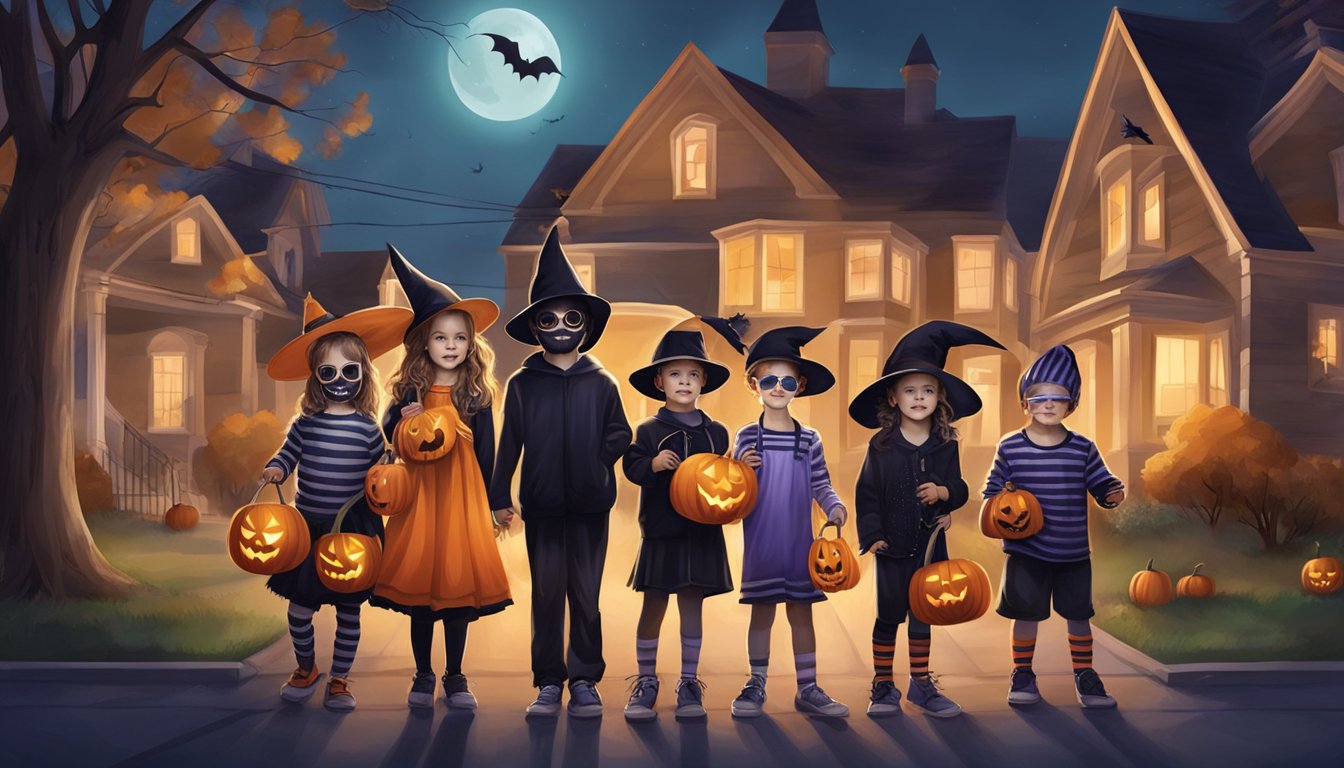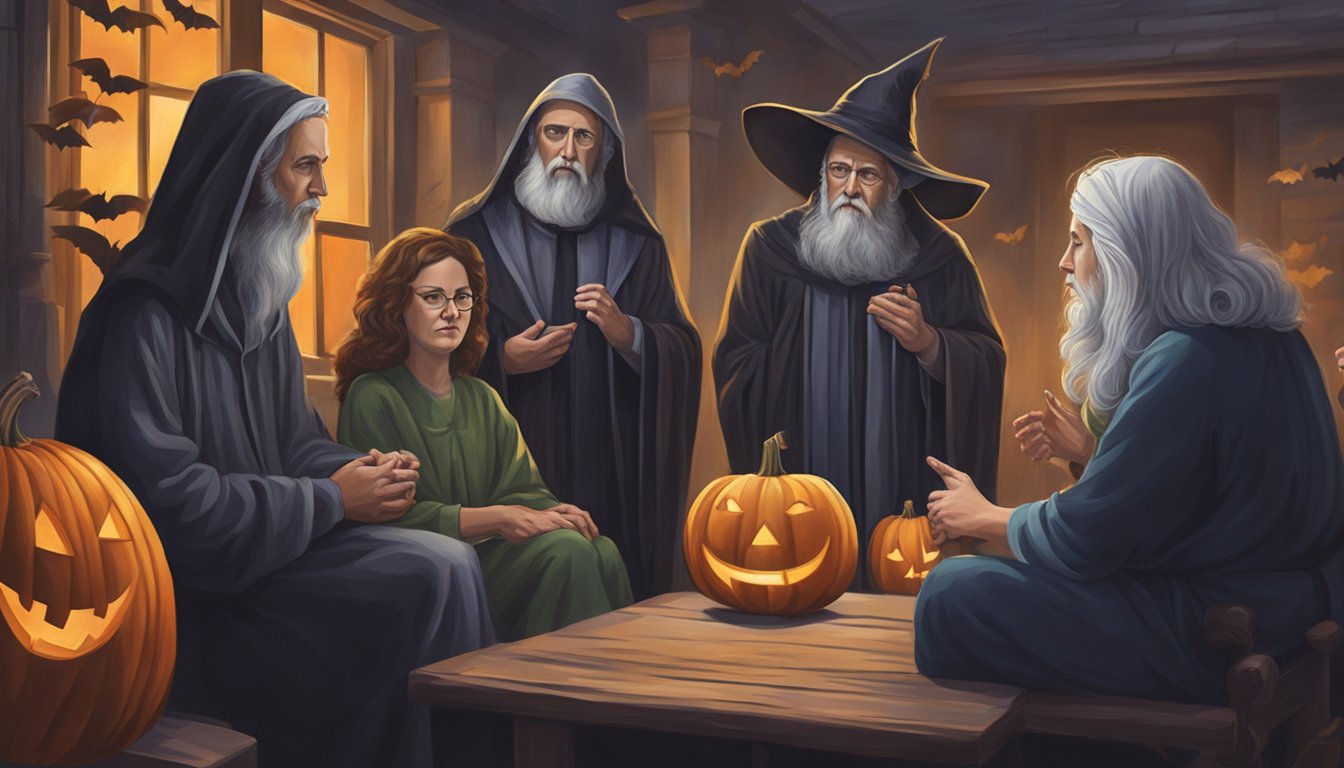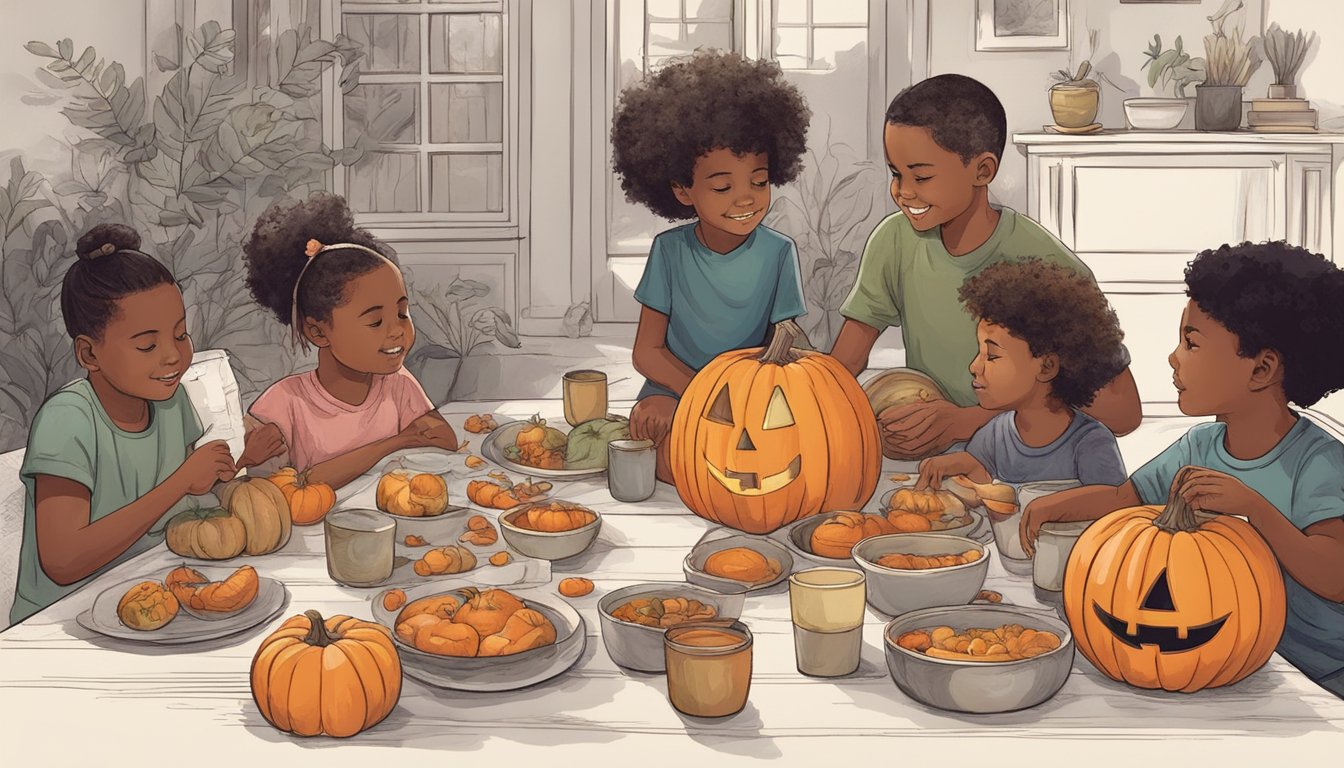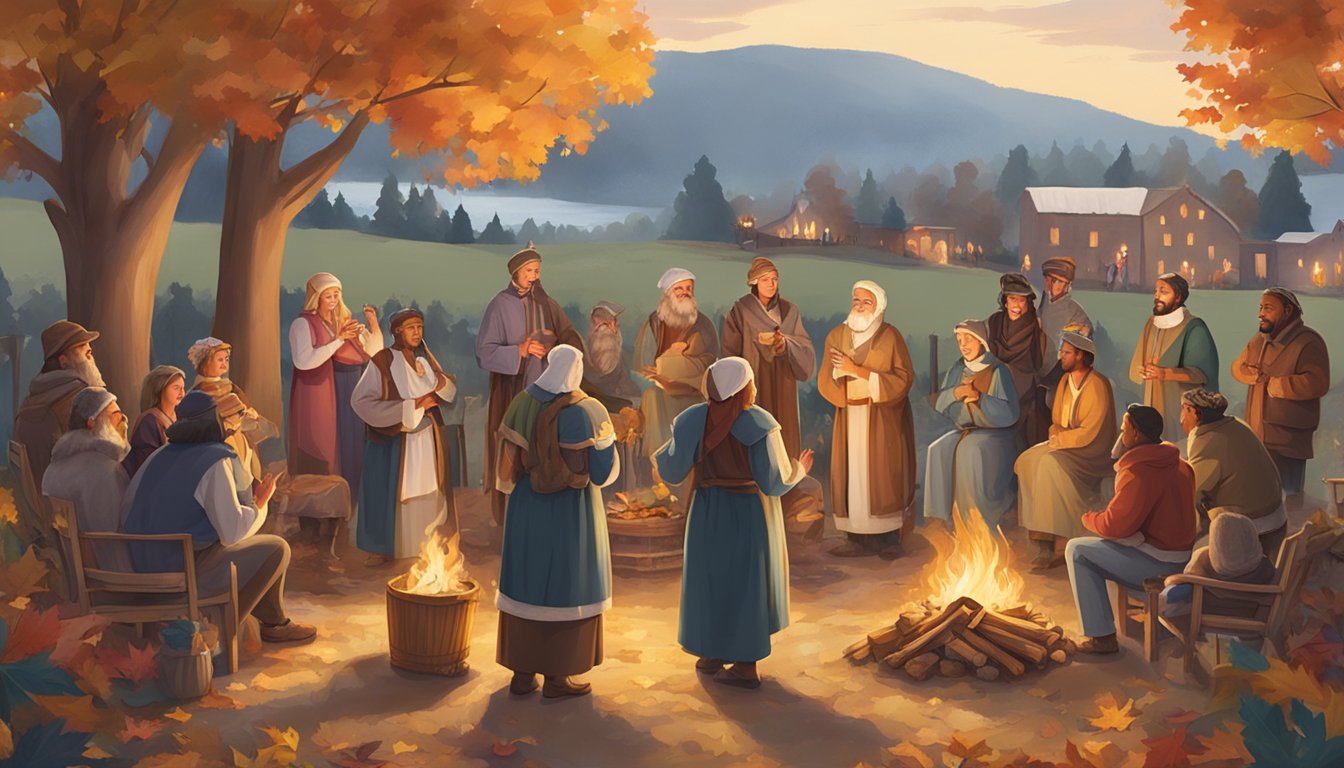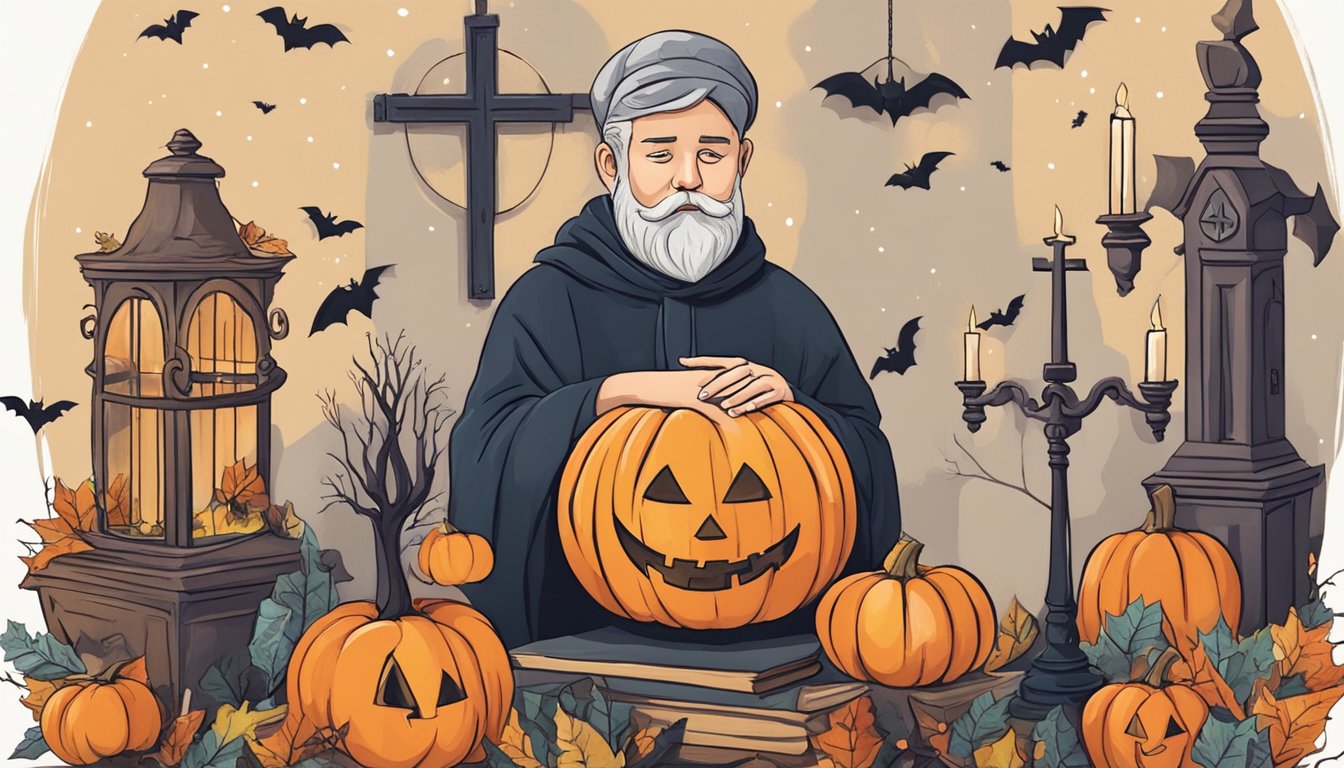Halloween is a holiday that has been celebrated for centuries, but it has also been a topic of debate among Christians. Some Christians view Halloween as a harmless holiday that is all about fun costumes and candy, while others view it as a holiday that promotes evil and darkness. The debate over whether Halloween is bad as a Christian is one that has been ongoing for many years, and there are many different perspectives on the issue.
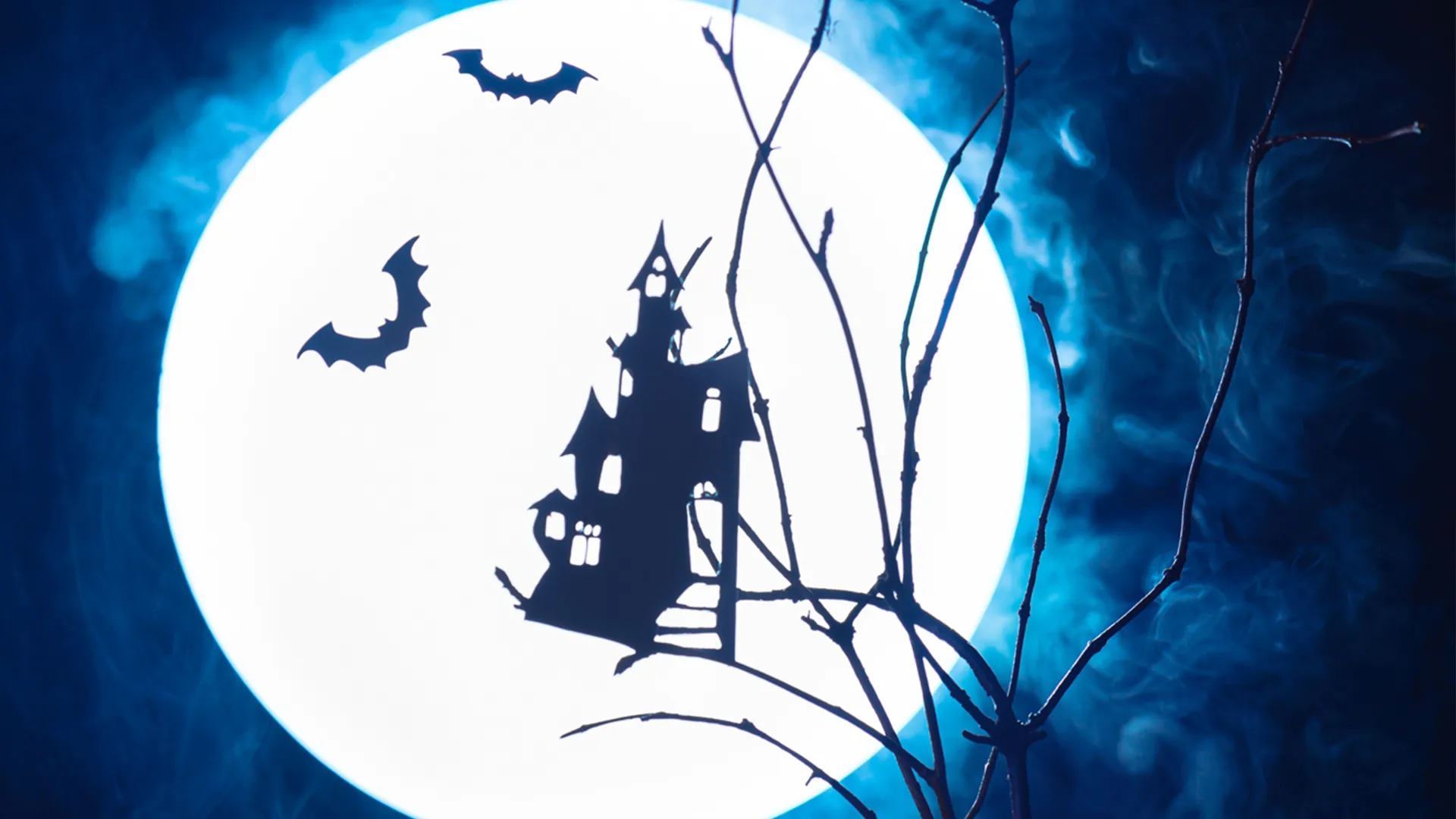
Christian Perspectives on Halloween vary greatly depending on the denomination and individual beliefs. Some Christians believe that Halloween is a pagan holiday that promotes witchcraft and the occult, while others believe that it is simply a fun holiday that has no spiritual significance. Some Christians choose to celebrate Halloween in a way that is consistent with their faith, while others choose to avoid it altogether. Regardless of one’s perspective, it is clear that Halloween is a holiday that is deeply rooted in cultural and religious traditions, and it is important for Christians to carefully consider their beliefs and convictions before deciding how to celebrate.
Key Takeaways
- Christian perspectives on Halloween vary greatly depending on denomination and individual beliefs.
- Halloween is a holiday that is deeply rooted in cultural and religious traditions.
- It is important for Christians to carefully consider their beliefs and convictions before deciding how to celebrate Halloween.
Christian Perspectives on Halloween
https://www.youtube.com/watch?v=Q3xsb26Pkg8&embed=true

Halloween is a widely celebrated holiday in many parts of the world. However, some Christians have reservations about participating in Halloween activities due to their religious beliefs. The Christian perspective on Halloween varies, with some Christians viewing it as harmless fun, while others believe it to be a celebration of evil.
Many Christians view Halloween as a celebration of evil and darkness, citing the holiday’s pagan origins and association with witchcraft and the occult. These Christians believe that participating in Halloween activities is incompatible with their faith and that it goes against the teachings of the Bible.
On the other hand, some Christians believe that Halloween can be celebrated without compromising their faith. They argue that Halloween can be a fun celebration of community and that it is possible to participate in Halloween activities while still honoring God.
The church also has varying opinions on Halloween. Some churches choose to celebrate Halloween with their congregations, while others choose to hold alternative events that provide a safe, family-friendly environment for their members.
Ultimately, the decision to participate in Halloween activities as a Christian is a personal one and should be made after careful consideration of one’s faith and beliefs. Whether one chooses to participate in Halloween or not, it is important to remember that the Bible teaches us to avoid evil and to seek the light of God in all that we do.
The History and Origins of Halloween
https://www.youtube.com/watch?v=UyOqOa440l4&embed=true
Halloween, also known as All Hallows’ Eve, has a long and complex history that dates back to ancient Celtic and pagan traditions. This section will explore the origins of Halloween and how it has transformed into the modern holiday celebrated today.
Celtic and Pagan Roots
The origins of Halloween can be traced back to the ancient Celtic festival of Samhain. Samhain, which means “end of summer,” was celebrated on the night of October 31st and marked the end of the harvest season and the beginning of winter. The Celts believed that on this night, the boundary between the living and the dead was blurred, and the spirits of the dead would return to earth.
To ward off these spirits, the Celts would light bonfires and wear costumes made of animal skins. They also believed that the veil between the worlds of the living and the dead was thinnest on this night, and that they could communicate with the dead through divination rituals.
As Christianity spread throughout Europe, the Catholic Church attempted to co-opt pagan festivals by adapting them to Christian traditions. Samhain was no exception, and in the 9th century, the Church declared November 1st to be All Saints’ Day, a day to honor all the saints and martyrs of the Church.
Christian Adaptation: All Saints’ Day

All Saints’ Day, also known as All Hallows’ Day, was a way for the Church to replace the pagan festival of Samhain with a Christian holiday. The night before All Saints’ Day became known as All Hallows’ Eve, which eventually evolved into the modern holiday of Halloween.
Today, Halloween is celebrated in many different ways around the world. In the United States, it is a popular holiday for children to dress up in costumes and go trick-or-treating. It is also a time for parties, haunted houses, and scary movies. While some Christians may choose not to celebrate Halloween due to its pagan origins, many others see it as an opportunity to have fun and connect with their community.
In conclusion, the history of Halloween is a complex and fascinating one that spans thousands of years. From its pagan roots to its Christian adaptation, Halloween has evolved into a holiday that is celebrated by millions of people around the world.
Biblical Analysis of Halloween Traditions
https://www.youtube.com/watch?v=3T4RlGtQFGc&embed=true
Halloween is a holiday that has been celebrated for centuries. However, many Christians question whether it is appropriate to participate in Halloween festivities. To understand the biblical perspective on Halloween traditions, it is essential to analyze the different customs associated with the holiday.
Costumes and Disguises
One of the most popular Halloween traditions is wearing costumes and disguises. While dressing up in costumes can be a fun activity, Christians should be cautious about the costumes they choose. Some costumes may be inappropriate or offensive, while others may glorify evil spirits, sorcery, or the occult. According to Leviticus 20:27, “A man or woman who is a medium or a spiritist among you must be put to death.” Therefore, Christians should avoid costumes that promote sorcery or witchcraft.
The Significance of Candy and Treats
« Is Texas Christian University a Christian University? Exploring the University’s Religious Affiliation
Is “Hold On” a Christian Song? Exploring the Religious Themes in Popular Music »
Another Halloween tradition is the distribution of candy and treats. While candy and treats can be enjoyed in moderation, Christians should be mindful of the message they are sending. Giving out candy and treats can be an opportunity to share the love of Christ with others. However, Christians should avoid giving out candy that promotes evil or the occult.
Trick-or-Treating and Its Implications
Trick-or-treating is a popular Halloween activity for children. While it can be a fun experience, Christians should be aware of the implications of participating in this tradition. Deuteronomy 18:9-13 warns against divination, sorcery, witchcraft, and other occult practices. Therefore, Christians should avoid participating in activities that promote these practices.
In conclusion, while Halloween can be a fun holiday, Christians should be cautious about the traditions they participate in. Christians should avoid costumes, candy, and activities that promote evil or the occult. Instead, Christians should focus on sharing the love of Christ with others and promoting positive values.
Assessing the Spiritual Implications
The Argument Against Celebrating

Many Christians are against celebrating Halloween due to its perceived association with darkness, death, and evil. Some argue that participating in Halloween activities, such as dressing up in costumes and decorating with spooky themes, can open the door to demonic influence and spiritual oppression. They believe that Halloween is a celebration of darkness and death, and that Christians should not be participating in such activities.
Understanding Spiritual Warfare
On the other hand, some Christians believe that Halloween can be an opportunity to engage in spiritual warfare. They argue that Halloween is a time when the forces of darkness are more active, and that Christians should use this time to pray and intercede for their communities. They believe that by praying and seeking the guidance of the Holy Spirit, they can combat the spiritual forces of darkness that are at work during this time.
It is important to note that there is no clear consensus among Christians on the issue of Halloween. Some believe that it is harmless fun, while others see it as a celebration of evil. Ultimately, each individual Christian must prayerfully consider their own convictions and seek the guidance of the Holy Spirit in deciding how to approach Halloween.
Regardless of one’s stance on Halloween, it is important to remember that as Christians, we are called to be in the world, but not of the world. This means that we should be mindful of the influence that the world’s values and practices can have on us, and strive to live in a way that is pleasing to God.
Cultural and Social Dimensions of Halloween

Halloween is a widely celebrated holiday in the United States, and it has both cultural and social dimensions. This section explores how Halloween is celebrated in the community, schools, and families.
Halloween in the Community
Halloween is a time when communities come together to celebrate. It is a time for children and adults to dress up in costumes and go trick-or-treating. Halloween parades and festivals are also common in many communities. These events provide an opportunity for people to socialize and have fun together.
In some communities, Halloween has become a major event. People decorate their homes with spooky decorations, and some neighborhoods even have competitions for the best-decorated house. Halloween-themed events such as haunted houses, hayrides, and corn mazes are also popular.
School Celebrations and Family Participation
Halloween is also celebrated in schools and by families. Many schools have Halloween parties, where children can dress up in costumes and participate in games and activities. Some schools also have costume parades, where children can show off their costumes to their classmates.
Families often celebrate Halloween by carving pumpkins, decorating their homes, and going trick-or-treating. Some families also have Halloween parties or attend community events together.

While Halloween is a fun and festive holiday for many people, some Christians may have concerns about participating in Halloween activities. Some Christians believe that Halloween has pagan roots and is incompatible with their faith. However, others see Halloween as an opportunity to share their faith with others and to participate in community events.
Overall, Halloween is a holiday that has both cultural and social dimensions. It is a time when communities come together to celebrate, and families and schools participate in fun and festive activities. While some Christians may have concerns about participating in Halloween activities, many others see it as an opportunity to have fun and connect with their community.
Halloween and Christian Freedom
https://www.youtube.com/watch?v=tEC5UqAdQs8&embed=true
Halloween is a holiday that has sparked controversy among Christians for many years. Some believe that participating in Halloween activities is harmless, while others believe that it is wrong and goes against Christian values. However, when it comes to Halloween, Christians have the freedom to make their own choices.
Romans 14 and Christian Liberty
Romans 14 talks about Christian liberty and how believers should not judge one another for their personal convictions. Christians have the freedom to choose whether or not to participate in Halloween, as long as they do not harm others or go against their own conscience. If a Christian feels that celebrating Halloween goes against their faith, they should not participate. Likewise, if a Christian feels that Halloween is harmless and innocent, they should feel free to participate.
Ephesians 5:11 and Choosing Light Over Darkness

Ephesians 5:11 says, “Take no part in the unfruitful works of darkness, but instead expose them.” This verse encourages Christians to choose light over darkness and to avoid participating in activities that glorify evil. While some Halloween activities may seem innocent, others may glorify darkness and evil. Christians should choose to participate only in activities that are innocent and do not go against their faith.
In conclusion, Christians have the freedom to choose whether or not to participate in Halloween. It is important to remember that Christians should not judge one another for their personal convictions and that they should choose to participate only in activities that are innocent and do not go against their faith.
Alternative Celebrations for Christians
While some Christians may feel uncomfortable participating in Halloween, there are alternative celebrations that align more closely with their faith. Here are a few options to consider:
Reformation Day
October 31st is also known as Reformation Day, which commemorates the day Martin Luther nailed his 95 Theses to the door of the Castle Church in Wittenberg, Germany. Some churches choose to celebrate this day instead of Halloween, with services and events centered around the Reformation.
Fall Festivals and Harvest Celebrations

Many churches host fall festivals or harvest celebrations as an alternative to Halloween. These events often include games, food, and music that align with Christian values. For example, families can enjoy hayrides, pumpkin carving contests, and apple cider while listening to Christian music.
These celebrations can be a great way for families to come together and enjoy the season without feeling like they are compromising their beliefs. Additionally, they provide a safe and fun environment for children to enjoy the festivities.
Overall, there are many alternative celebrations that Christians can participate in during the fall season. By choosing events that align with their faith, they can enjoy the season without feeling like they are compromising their beliefs.
Guidance for Christian Parents
https://www.youtube.com/watch?v=61CAfPzjgHM&embed=true
Navigating Conversations with Children
As a Christian parent, it is important to have open and honest conversations with your children about Halloween. Parents should explain their convictions and why they choose to celebrate or not celebrate this holiday. It is also important to listen to your children’s thoughts and feelings on the matter and address any concerns they may have.

One way to approach the conversation is by sharing the gospel message. Halloween provides a unique opportunity to talk about spiritual matters and the love of Christ. Parents can use the holiday as an opportunity to hand out gospel tracts or engage in conversations with their neighbors about the gospel.
Setting Boundaries and Expectations
While some Christian families choose to participate in Halloween festivities, others do not. It is important for parents to set boundaries and expectations for their children. Parents should communicate clearly what activities are acceptable and what is not. This can include guidelines on costumes, decorations, and participation in certain events.
It is also important for parents to model their convictions and lead by example. Children are more likely to follow their parents’ lead and adopt their beliefs. Parents should be intentional about their actions and decisions during the Halloween season.
In conclusion, Christian parents should prayerfully consider their convictions and how they want to approach Halloween with their family. By having open conversations with their children and setting clear boundaries and expectations, parents can navigate this holiday in a way that aligns with their beliefs and values.
The Debate Over Halloween’s Harmfulness
https://www.youtube.com/watch?v=UVwwZgUg0I8&embed=true

Halloween has been a controversial topic among Christians for many years. While some view it as a harmless holiday, others view it as a day full of fear, negativity, and even violence. In this section, we will analyze the notion of harmlessness and address concerns of fear and negativity.
Analyzing the Notion of Harmlessness
Many Christians view Halloween as a harmless holiday. They see it as a day for dressing up in fun costumes, going trick-or-treating, and enjoying candy. However, some argue that Halloween has a dark history and is rooted in pagan traditions. They believe that participating in Halloween goes against their convictions as Christians.
It is important to note that the origins of Halloween are debated among scholars. While some believe it originated from pagan rituals, others believe it has Christian origins. Regardless of its origins, many Christians have chosen to celebrate Halloween in a way that aligns with their beliefs.
Addressing Concerns of Fear and Negativity
One concern that some Christians have with Halloween is the fear and negativity associated with it. They argue that Halloween is a day full of horror and violence, and that it promotes a culture of fear. They believe that participating in Halloween goes against the Christian values of love, peace, and safety.
On the other hand, some Christians believe that Halloween can be an opportunity to spread the message of love and hope. They see it as a day to reach out to their community and share the gospel. They argue that participating in Halloween can be a way to show God’s love to those who may not know Him.

In conclusion, the debate over Halloween’s harmfulness is ongoing among Christians. While some view it as a harmless holiday, others view it as a day full of fear and negativity. It is up to each individual to decide how they will celebrate Halloween in a way that aligns with their convictions as Christians.
Personal Convictions and Halloween
Halloween has been a topic of debate within the Christian community for many years. Some Christians believe that participating in Halloween is incompatible with their faith, while others see it as an opportunity to celebrate and share the gospel. Ultimately, the decision of whether or not to celebrate Halloween as a Christian is a personal conviction.
Respecting Diverse Views Within Christianity
It is important to respect the diverse views within Christianity when it comes to Halloween. While some Christians may choose to abstain from Halloween celebrations, others may feel comfortable participating in Halloween activities. The church is made up of individuals with different backgrounds, experiences, and convictions, and it is important to respect these differences.
Making Individual Choices Based on Faith
As with any decision in life, Christians should make individual choices based on their faith and personal convictions. If a Christian feels that participating in Halloween celebrations goes against their faith, they should abstain from these activities. On the other hand, if a Christian feels that they can participate in Halloween activities while still maintaining their faith and convictions, they may choose to do so.
Ultimately, the decision of whether or not to celebrate Halloween as a Christian is a personal one that should be made with prayer and discernment. Christians should focus on loving God and others, and making decisions that are in line with their faith and convictions.
Frequently Asked Questions
https://www.youtube.com/watch?v=ntuBoKzVX24&embed=true
Should Christians participate in Halloween festivities?
The answer to this question depends on personal beliefs and convictions. While Halloween has pagan roots, it has evolved into a secular holiday focused on dressing up and having fun. Some Christians choose to participate in Halloween festivities, while others choose not to.
What are biblical perspectives on celebrating Halloween?
The Bible does not mention Halloween specifically, but it does warn against participating in practices associated with the occult and witchcraft. Christians should be cautious about participating in Halloween activities that glorify evil and darkness.
How does the Catholic Church view participation in Halloween?
The Catholic Church does not have an official stance on Halloween, but some Catholics choose not to participate in Halloween festivities due to its pagan roots and association with the occult.
Can Halloween traditions be aligned with Christian values?
Some Halloween traditions, such as dressing up in wholesome costumes and handing out candy to children, can be aligned with Christian values. However, Christians should be cautious about participating in activities that glorify evil and darkness.
What are wholesome Christian alternatives to traditional Halloween activities?
Some wholesome Christian alternatives to traditional Halloween activities include hosting a fall festival or harvest party, attending a Christian concert or play, or participating in a community service project.
Has the Vatican issued any guidance on the observance of Halloween?
The Vatican has not issued any specific guidance on the observance of Halloween. However, Catholics are encouraged to be mindful of the holiday’s pagan roots and to avoid participating in activities associated with the occult and witchcraft.

